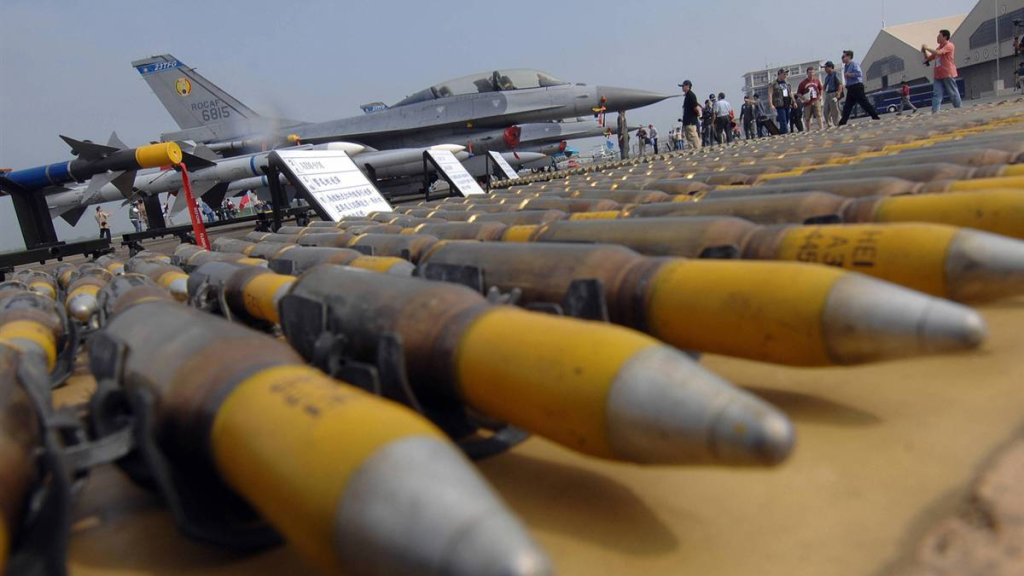On May 1, 2025, former President Donald Trump’s administration greenlit a $50 million arms sale to Ukraine, marking the first such move since his return to office. The sale includes advanced military-designated goods, technical data, and related defense services.
This significant decision signals a potential shift in U.S. foreign policy amid the ongoing conflict between Ukraine and Russia, drawing widespread attention from global leaders and defense analysts alike.
According to U.S. officials, the direct commercial sale will supply Ukraine with critical defense resources intended to enhance its capabilities against escalating Russian aggression. The deal also coincides with a broader agreement allowing U.S. access to Ukraine’s rich mineral resources, reinforcing the bilateral partnership on both military and economic fronts.
Strategic and Military Implications
The arms deal is seen as a strategic maneuver aimed at bolstering Ukraine’s defenses while reestablishing the United States’ presence as a key player in Eastern European security. Experts argue that this sale could help deter further Russian advances and support Ukraine’s sovereignty at a critical time.
Military analysts note that although $50 million may not constitute a massive aid package, it carries symbolic weight. The approval indicates Washington’s willingness to support Kyiv without extending to full-scale military involvement.
Furthermore, Ukraine’s Ministry of Defense has expressed interest in expanding this relationship by seeking more advanced weapons systems and licensing agreements for future production.
“The timing is crucial,” said retired U.S. General Mark Leighton. “With Ukraine’s defenses strained and diplomatic negotiations faltering, this deal helps stabilize their position without requiring NATO deployment.”
Political Motivations Behind the Decision
Many political observers see the arms sale as a calculated move to appease factions within the Republican Party that have called for a firmer stance against Russian influence.
Trump has faced criticism from both Democrats and foreign allies for previously taking a more conciliatory tone toward Moscow. By approving this arms sale, he distances his administration from such accusations and repositions himself as a defender of U.S. interests abroad.
“This is a balancing act,” said political science professor Lydia Hoffman. “It’s about shoring up domestic support among defense hawks while sending a signal internationally that the U.S. is not retreating from its role in global security.”
In addition, this arms deal may serve to temper bipartisan concerns about reduced U.S. engagement in Europe and reassure partners who feared a more isolationist stance from Washington in Trump’s second term.

Economic and Industrial Impacts of the Deal
The deal is expected to benefit the American defense industry, as it opens avenues for continued production and export of military-grade technology. U.S. manufacturers involved in the transaction will not only receive an immediate financial boost but may also set the stage for future, more lucrative agreements with Ukraine and other allies.
Ukraine’s interest in producing U.S. military equipment under license would further embed American technologies into its defense framework, fostering long-term industrial collaboration. This could lead to an extended geopolitical partnership that reaches beyond the battlefield and into economic development.
The new U.S.-Ukraine minerals agreement is also expected to bring significant commercial advantages. It provides American companies access to Ukraine’s untapped deposits of rare earth elements, which are crucial for producing defense and tech components. This enhances U.S. supply chain security while deepening economic ties with Kyiv.
Global Reactions and Future Outlook
Reactions to the arms deal have been mixed. Ukraine has publicly welcomed the support, calling it a step toward strengthening national resilience. However, some European allies remain cautious, warning that the deal could escalate tensions with Russia and complicate peace efforts.
Russia, in response, condemned the sale and accused the U.S. of undermining regional stability. Kremlin spokesperson Dmitry Peskov stated that the move would “further deteriorate diplomatic relations and increase the risk of military confrontation.”
Despite these concerns, defense experts believe that controlled, targeted arms sales—especially those tied to commercial agreements—could enhance Ukraine’s deterrence posture without provoking full-scale retaliation.
Going forward, the U.S. may consider additional deals or support mechanisms depending on Ukraine’s battlefield performance and diplomatic developments. The possibility of future agreements involving more sophisticated defense systems, like the Patriot missile platform, remains on the table.
Conclusion: A Defining Move in U.S.-Ukraine Relations
Trump’s approval of the $50 million arms sale to Ukraine represents more than a transactional exchange—it marks a defining moment in the administration’s approach to international defense and diplomacy. With strategic, political, and economic factors all playing a role, the deal sets the stage for a more assertive U.S. stance in Eastern Europe.
While its long-term effects remain to be seen, this arms deal sends a clear message: the United States, under Trump’s leadership, is reengaging with Ukraine in a multi-dimensional partnership aimed at countering Russian influence and ensuring regional security.
For further expert analysis, visit United24 Media.
Disclaimer – Our team has carefully fact-checked this article to make sure it’s accurate and free from any misinformation. We’re dedicated to keeping our content honest and reliable for our readers.
